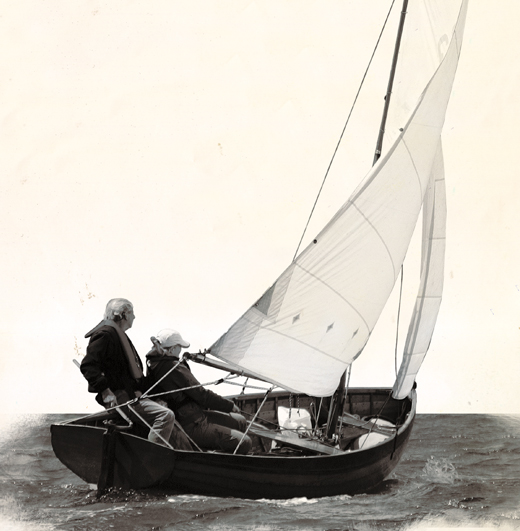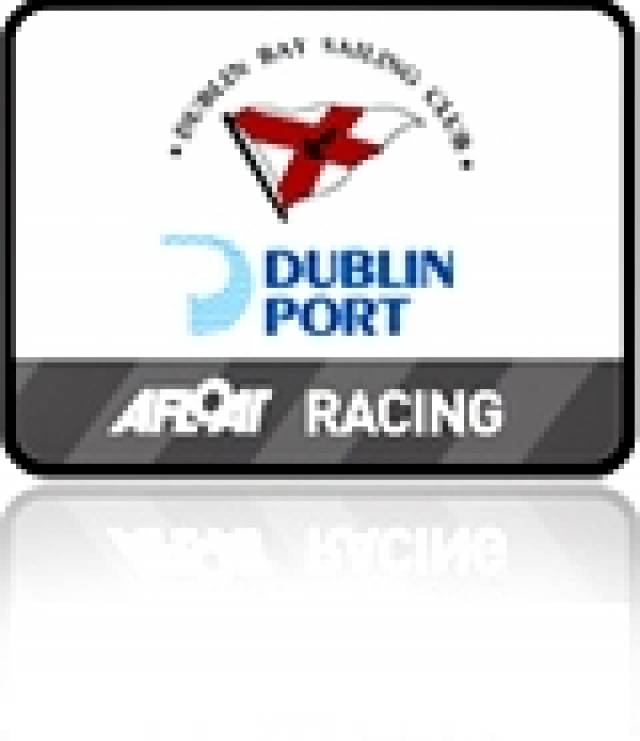Donal O'Sullivan of Dublin Bay Sailing Club writes on cheering the winner.
This is an old sailing custom whereby the winner is applauded by the loser - is not much practiced nowadays in Dublin Bay. The Dragons do it, or used to up to lately, and the Shipmans most certainly. The Wags, too, and no doubt the Glens
When boat were on adjoining moorings, cheering the winner was something people did automatically, almost perfunctorily. There was nothing unusual or self-conscious about it. Finished racing, you sailed up to the winner, gave him three hearty cheers and – be it noted - he was expected to reply in similar fashion. Dixon Kemp, the author of a well-regarded Victorian manual on sailing (Google it) says that the first boat then adds one more cheer – to sign off, so to speak – but I can't recall ever having noticed this latter part of the ritual being observed in these parts
Kemp (1839-1899) was one of those protean Victorian personalities, multi-gifted in all sorts of activities, who in its early days devised the format and the procedures for yacht racing that most of which we still observe to this day. He was an architect, newspaper editor, designer of yachts and steam vessels, author of a number of books on sailing, yachting editor of The Field, a founder member and first secretary of the YRA and also established Lloyd's Yacht Register.

Keeping tradition alive, Waterwags sailing on Dublin Bay
His remarks on cheering read: The loud, deep and sonorous "hip, hip, hurrahs" which the crew of a vanquished yacht greet the victrix with. A custom much honoured. The crew of the vanquished yacht line the bulwarks and give three consecutive "hip, hip, hurrahs", the winning crew does the same; the vanquished then give a single "hip, hip, hurrah to "come up with" or
finish off.
He was interesting, too, on how the custom originated – the practice in the British navy of mustering the crew along the bulwarks to part company or meeting another ship.- derived, unlikely as it may seem, from the custom in "fighting days" of one war ship cheering another which was an enemy.
Corinthian Sailing
This was the theme of an interesting symposium of yachting historians organised in Dun Laoghaire last year by Hal Sisk. The term, simply defined, means sailing by amateurs. It was much in vogue in Victorian and Edwardian times and, unsurprisingly, in Dublin Bay, where amateur sailing was very much the thing..
The Royal Alfred, indeed, feeling the need to define exactly who was an amateur and who wasn't, in its 1895 constitution, described this individual as follows:
"A person shall not be considered an amateur who is, or has been employed for pay in any capacity on board a yacht or other vessel, commissioned officers of the Royal Navy, Royal Marines and Royal Naval Reserve excepted; also officers of the Mercantile Marine if they have never served for pay on board a yacht and are members of a recognised yacht club, but not anyone who is by trade or employment for wages a mechanic, artisan, labourer or servant".
Dixon Kemp points out that the term Corinthian "half a century ago was commonly applied to the aristocratic patrons of sports , some of which such as pugilism, are not now the fashion. The name was adopted in consequence of the similarity between the fashionable young men of Corinth who emulated the feats of athletes &c and their modern protypes".
The term, indeed, has always had a certain ring about it, a throwback, perhaps, to a code of honour or behaviour such as was presumed to exist in a bygone age between gentlemen of rank.
On a personal level I had direct experience of the force of tradition in this area some time ago during a protest hearing after a Dublin Bay race. As can sometimes happen, there was a flaw in the procedure, a fault seized upon with relish by the protestee. "Even if I were at fault, " he told us triumphantly "you can't do anything about it because this committee is illegally constituted". This was true enough because the race was a joint Alfred-DBSC affair and the committee, of course, should have made up of members of both clubs. Which is wasn't.
All we could do was grind our teeth in frustration until the senior member present solved the problem. "Mr So and So" he enquired, fixing the culprit with steely glance, " is this conduct proper to a member of a Corinthian yacht club? ". The effect was most gratifying. The offender sat up, reflected a bit - and thinking perhaps of all sorts of unpleasant letters directed to his club Commodore - conceded that perhaps he was in the wrong and in the circumstances thought it best to retire from the race.
Coming back to the historical Corinth, some years ago our late local parish priest, a very learned and by all accounts very saintly man, discussing St.Paul's Epistles to the Corinthians in one of his Sunday morning homilies, suggested that the word Corinthian has certain pejorative associations - that St. Paul, in his efforts to keep the inhabitants of that city on the steep and narrow, had, in effect, his job cut out for him.
Meeting him afterwards, I asked about this – in the sailing world, I told him that (stretching it a bit) a Corinthian was person of integrity and of the highest standards. The PP was unimpressed. In St. Paul's time, he averred, the Corinthians were no better than they ought to be. "Everyone knows that the Corinthians were a bad lot" seemed to be his view .
An interesting sidelight on what the PP might have had in mind - but perhaps was of too retiring a disposition to say so - appeared a while ago in a splendid volume, Some Talk of Alexander, by Frederic Raphael on myth and history in the ancient world. Raphael quotes a well-known Latin tag non cuivis homini contingit adire Corinthum, which, roughly translated, means "it's not everyone's luck to get to Corinth".
The city, it seems, was famous in antiquity for what Raphael delicately refers to as its erotic bazaar, an institution that had made Corinth into a world-class tourist attraction. And the luck in question referred to access to the delectable ladies who earned their living there.
Perhaps with this in mind it might be well if we were to use the word a bit sparingly?
Donal O'Sullivan































































